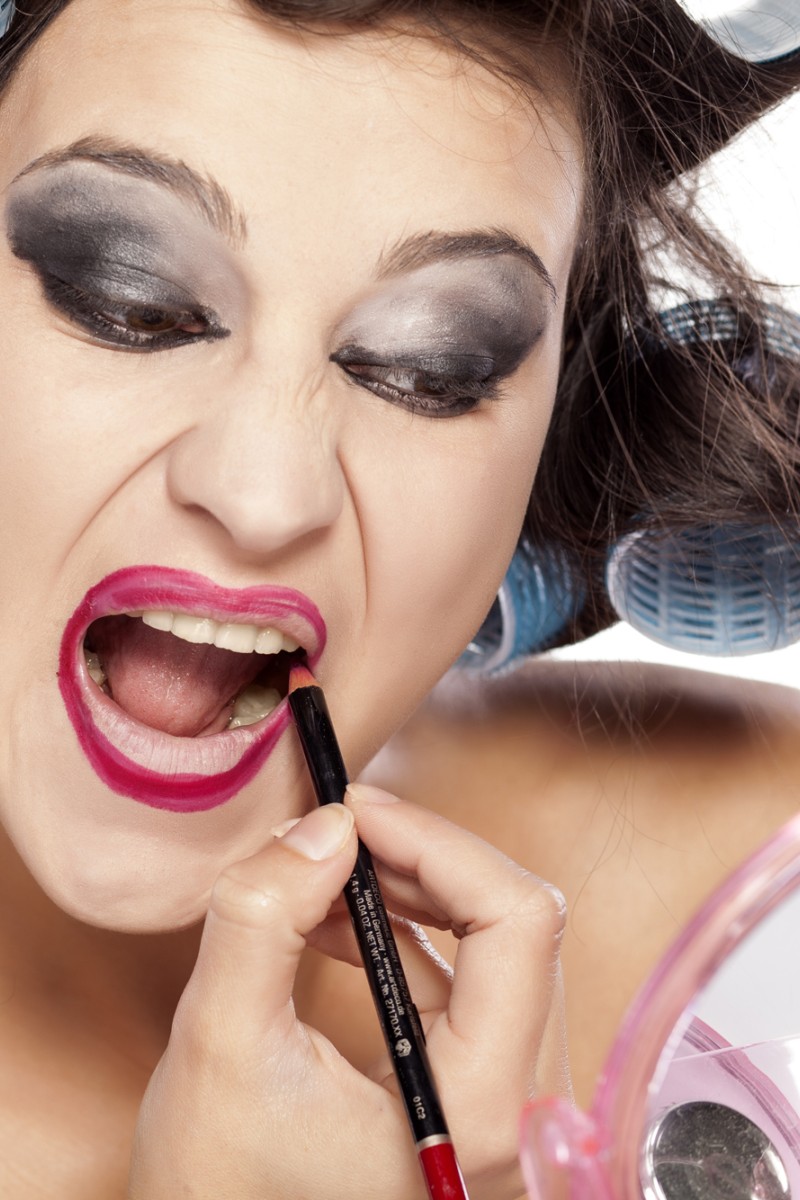
Listen to this article
Think make-up mistakes mean you just look silly for a day? Ha! If only. If you don't take care of your products, tools or application, it can lead to anything from acne to eye infections. Here's a guide to avoiding these beauty mishaps
By Candace Kwan
|
Published:
Comment

Too much make-up/ not mixing it up
Telltale signs:
- Product build-up around the T-zone
- Product looking cakey on your face … basically, making it obvious you're wearing make-up
- Make-up fading to reveal uneven skin
Quick fix:
- Stop piling it on and learn to build layers, especially with eyeshadow. Consider switching from dense face brushes to fluffier ones that pick up less product and give you more control over how much you apply.
- Less is more. Try using half the amount of foundation or powder you normally would and see how it fares throughout the day.
- Tailor your routine to the weather. That fantastic mattifying foundation you loved in the humid summer might dry you out in winter.
- Switch your face products - foundation, moisturiser and primer - every season. Use an oil-control one for the hotter months and hydrating one for the colder months. (Eye make-up doesn't have to change much, except maybe the shades.)
Not being clean enough
Telltale signs:
- Occasional breakouts with no known cause, or more blemishes on just one side of your face
Quick fix:
- At least once a week, clean any surfaces that come into contact with your face. This includes make-up brushes, pillowcases, and your mobile phone. Germs accumulated on these objects can transfer onto you face and cause spots.
Horrors of hoarding
Telltale signs:
- Make-up smells "off"
- Texture of the product has changed
Quick fix:
- Regularly review your stash of goodies to get rid of expired products.
- Be mindful of your products' shelf life. For example, most foundations will last for about a year, but mascara should be replaced every four months.
- When in doubt, chuck it out. The results - a nasty zit or eye infection - just aren't worth the risk.
Pumping up germs in your mascara
Telltale signs:
- Mascara runs out or dries faster than expected
- The product starts smelling off
- Your eyes become itchy when using it
Quick fix:
- Don't pump your mascara wand in and out of the tube to get the product out. This pumps air and germs into the tube! Gently spin the wand into the tube to grab extra product instead.
Using too much conditioner
Telltale signs:
- Greasy hair, sticky roots, or dull, flat hair without any volume
Quick fix:
- Use a few sprays of dry shampoo to mop up the extra grease.
- Rub a bit of baby power onto your scalp to absorb the excess oil; preferably just before you sleep so your tossing and turning will work the powder into your scalp.
- Wash your hair occasionally with a clarifying shampoo, and only apply conditioner sparingly to the ends. You don't need much conditioner at your roots because your scalp produces its own oil.
Applying make-up to bare skin
Telltale signs:
- Dry patches, uneven application of make-up, or product fading away to nothing super fast
Quick fix:
- Apply a light moisturiser to your skin, and allow time for it to sink in, before putting on any make-up. Add a primer if you're super oily: this will give your make-up something to sit on and hold on to, so it'll look better and last longer.
Chipping nail polish
Telltale signs:
- Uneven nail polish, jagged edges, chipped ends
Quick fix:
- Remove your nail polish thoroughly and gently buff your nails for an even shine. Clean, shiny nails look better than ragged polished ones.
- Paint on a glitter polish and arrange the glitter to disguise the chipping. But don't leave it on for too many days.
- Take good care of your nails. Keep them at a reasonable length to avoid snagging or breakage, and rub strengthening oil into them once or twice a week. Healthy nails provide a better surface for nail polish to sit on, so they won't chip as easily.
Sign up for the YP Teachers Newsletter
Get updates for teachers sent directly to your inbox
By registering, you agree to our T&C and Privacy Policy
Comment
Sign up for YP Weekly
Get updates sent directly to your inbox
By registering, you agree to our T&C and Privacy Policy